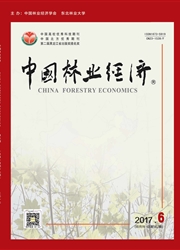

 中文摘要:
中文摘要:
城市森林有效削弱热岛效应、促进低碳交通、土壤热能利用、吸纳有机垃圾,起到降低能耗的多重作用,城市湿地也具有部分功能。林地、水面改变城市形态和发展方式,形成人口与建筑的非均衡布局,以利产业重组、建筑节能、交通减碳,即轨道交通协同非机动交通排斥和替代能耗高的机动车辆;城市林地还吸纳交通碳排放,增强碳汇能力。宏观调控旨在利用城市林地综合效益形成的内在机制,出台与城市森林和热岛效应挂钩的外在约束。
 英文摘要:
英文摘要:
Urban Forest can effectively weaken the heat island effect, promote low carbon transport, the use of soil heat and absorb organic waste, play multiple roles in reducing energy consumption; the urban wetland also has some of the features. Woodland and water change the form and development mode of city, form a non-balanced distribution of population and building rail transit, in order to facilitate industrial restructuring, building energy efficiency, transport and carbon reduction, namely: Collaborative exclusion and substitution of non-motorized transport and high energy consumption of motor vehicles; city woodland also absorb the transportation carbon emissions, enhance carbon sinks. The macro-control is designed to take advantage of the internal mechanism of the formation by the comprehensive benefits of urban woodlands, the introduction of external constraints linked with the urban forest and the heat island effect.
 同期刊论文项目
同期刊论文项目
 同项目期刊论文
同项目期刊论文
 期刊信息
期刊信息
